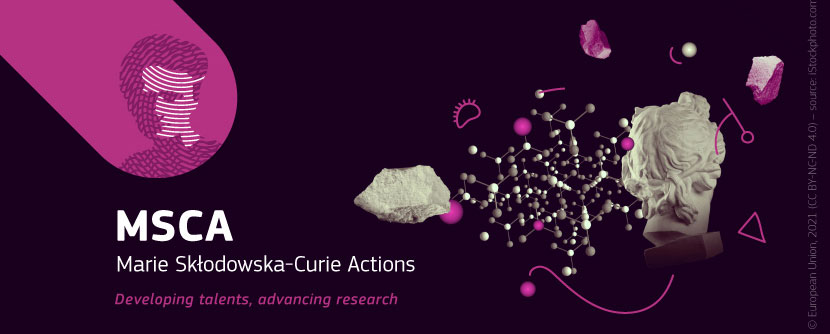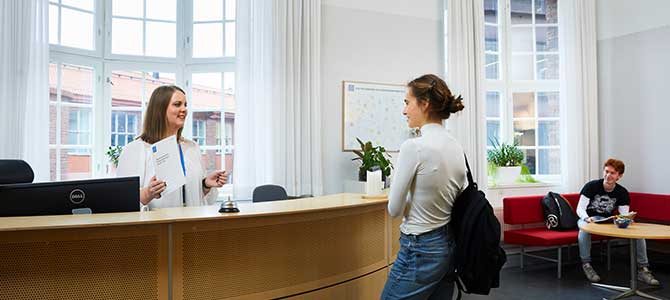Marie Skłodowska-Curie actions (MSCA)
Marie Skłodowska-Curie Actions (MSCA) is part of the EU’s Horizon Europe programme, and it offers funding for independent research and transnational mobility worldwide.


The programme has opportunities for individual projects, research schools, the secondment of researchers and those working in innovation, the development of regional and national collaborations, and dissemination of research. The projects should lead to innovations for relevant players, with free access to scientific results. Training and education are important aspects of MCSA in addition to research.
MCSA consists of five actions, each with annual calls.
List of all KTH's approved projects and initiatives
Postdoctoral fellowships
Postdoctoral fellowships fund individual research projects for up to three years. To be eligible, applicants must have a maximum of eight years’ experience in research from the date of the award of their PhD degree. In addition they must not have resided or worked in the intended project country for more than 12 months in the past three years.
If you wish to base the project in an organisation in an
EU
or
Horizon Europe Associated country
, such as the
UK
, you should apply for a European Fellowship (maximum two years).
If instead you wish to base the project in an organisation in another part of the world, a Global Fellowship offers funding for up to three years: two years outside of Europe with a mandatory return phase of one year. For both the European and the Global Fellowships, it is possible to add a further six months for ‘non-academic placement’.
Postdoctoral Fellowships on EU's website
Doctoral networks
Doctoral networks are interdisciplinary research schools that run for up to five years. The consortium should comprise at least three organisations in three EU or Associated countries. Organisations in low- and middle-income countries may also be granted funding.
Doctoral networks is a good way of funding third-cycle studies, conducting and publishing research, organising events, and maintaining networks. The consortium designs an overarching research project, and within this framework, individual projects for international doctoral students, offering supervision, education and research infrastructur. Depending on the nature of the project, the doctoral students’ future career paths and so on, the consortium can either apply for standard doctoral networks, joint doctorates (DN-JD) or industrial doctorates (DN-ID).
Doctoral students are also encouraged to have completed internships with relevant external organisations, although this is not a requirement. The EU funds up to three years of doctoral study, the school covering the fourth year. Standard doctoral networks and dndustrial doctorates can last four years, and the EU funds up to three years of doctoral time. Joint doctorates can last five years and finance up to four years of doctoral time
Doctoral Networks on the EU's website
Staff exchanges
Staff exchanges involve both academic and non-academic organisations, including small and medium-sized companies from around the world. If you are employed as a doctoral students, postdocs, researchers, and other research and innovation staff at KTH, you have the opportunity to be placed on secondment for between one month and one year. You should also be prepared to receive corresponding visits from other partners in the consortium. A project may run for up to four years, and the consortium must comprise at least three organisations, two of them in EU/Associated countries.
Staff Exchanges on the European Commission website
COFUND
If you already have established or would like to develop a new regional, national or international institutional collaboration focusing on doctoral students or postdocs, COFUND offers supplementary funding for five years. This means that KTH must co-fund the project. The consortium must comprise at least one principal applicant organisation, with the option to include partners in EU/Associated countries, or low- and middle-income countries.
MCSA & Citizens
Citizens provides opportunities for scientists to organise exhibitions and events. European Researchers’ Night, a science festival for the general public, focusing on young people and their families, is held over two days at the end of September each year. The aim is to promote interest in science and research. Funds can also be sought for collaboration with lower and upper secondary schools on natural sciences, engineering, art and mathematics. Schools can borrow a scientist, organise exhibitions and competitions, and conduct experiments and study visits.
Please contact Johanna Franson or Leila Zoubir if you would like to participate in Researcher's Night!
